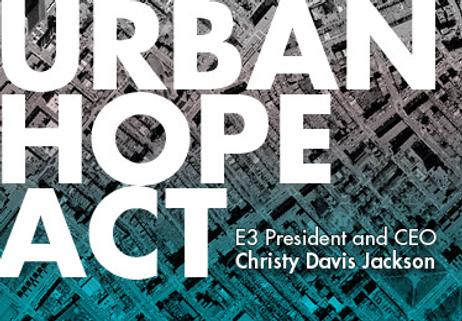Despite the fact that New Jersey boasts a higher per-pupil expenditure in public education than any other state in the country, many of the public schools across the state are failing to provide the quality education students need to succeed today. This is particularly true in low-income cities like Camden, Trenton and Newark, where high school graduation rates fall well below the state average. Concerned with the data coming out of his school districts, Governor Chris Christie promised to make 2011 the year of education reform. His first legislative victory to that end will go into effect in 2012, allowing non-profit organizations to construct new schools in failing areas of the state.
The Urban Hope Act
The recent bill signed by Governor Christie, known as the “Urban Hope Act,” is a 10-year pilot program that allows non-profits to build and run schools in low-income areas of the state. According to a report at Bloomberg, these schools, referred to as “renaissance schools,” will be located in the cities of Trenton, Newark and Camden – currently classified as some of the poorest cities in the country. Groups interested in taking on a school construction project may apply through local school boards first and then through the state department of education. As many as four schools in each city will be allowed.
“This is an innovative idea that allows us to partner with folks who will bring capital to the table to build these schools,” Christie told NJ.com as he was promoting his new bill.
Evolution of a Bill
The bill has been carefully worked and reworked to ensure the support of state legislators, as well as the New Jersey Education Association. In the original version of the bill, both non-profits and for-profit businesses would have been allowed to oversee new schools. With construction and operation limited to non-profits in the final version of the bill, the new schools would more closely follow a charter school model of operation.
“Just like charter schools that are already operating all over New Jersey, these renaissance schools will be subject to strict accountability by the Department of Education in meeting the bottom line, which is improving student achievement,” Governor Christie was reported saying in NJ.com.
The chairman of the New Jersey Education Association, Steve Baker, agreed with Christie’s assessment. He also told NJ.com, “These are not charter schools, but more akin to charter schools than the original version of the bill, which would have been more like private schools receiving public funding.”
What the Non-Profits will Do
According to a report at Philly.com, a non-profit that wanted to build a new school in one of these areas would bear the cost of the land acquisition, as well as the design and actual construction of the school. The organization would then receive 95 percent of the per-pupil expenditure for each student in the school, which could be used for daily operations overseen by the non-profit. Currently, per-student expenditure in Camden is around $19,000, one of the highest rates in the country. Despite the high spending to date, just over half of all Camden students graduate high school – a much lower figure than the 95-percent state average for graduation rates.
“There’s a myth that money equals quality education,” Christie told Philly.com.
In response to concern that the money coming from the state would promote corruption and milking of the system, Christie assured everyone that sufficient government oversight would nip that potential in the bud. The schools that were constructed would also be accountable to the same performance standards as other schools in the state. The mayor of Camden, Dana L. Redd, agreed that schools would be held to strict oversight and quality standards.
“I’m not going to support any entity that comes in to milk Camden,” Redd told Philly.com. “We’ve been milked enough, there’s nothing left.”
Choosing the Right Entities
An article at the Chronicle of Philanthropy explains that careful assessments will also be made of the non-profit organizations that want to open a school in one of these cities. First, the entity would have to demonstrate experience working in high-risk, low-income urban areas like the cities in question. These groups would also be limited to just four schools per city to ensure quality controls could easily remain in place. In addition, the new schools would have to abide by prevailing wage rules, ensuring teachers that worked in these schools could enjoy the same benefits as instructors at other public institutions throughout the state.
Currently, the School Development Authority is responsible for fixing deteriorating schools and constructing new buildings. However, the SDA has not constructed a single school building since Christie took office, leaving many schools across the state in poor condition. Schools have also not gone up in areas dealing with severe overcrowding – another issue impacting the quality of education in many low-income neighborhoods across the state. Christie believes that the people of New Jersey would rather see their money go into an organization other than the SDA, which has been plagued with reports of wasteful, ineffective spending for some time.
The benefit of allowing new schools to be built is to provide parents and students in these areas with other options in public education. This bill is just the beginning of Christie’s plans for a major education overhaul, which will eventually include a change to the 100-year tenure law, higher salaries to top-performing teachers and vouchers for students currently attending failing public schools.












